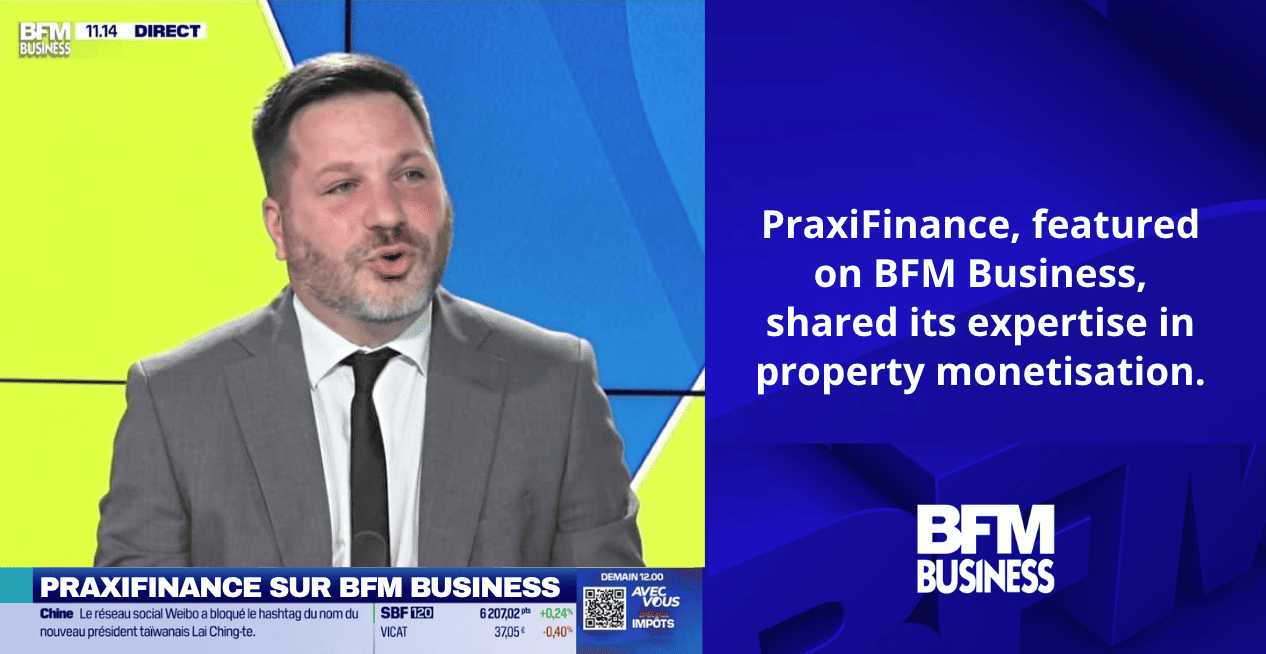France’s equity-release market has expanded rapidly as homeowners seek safe ways to monetise real-estate wealth without selling. Unlike the UK, where national insurers dominate, the French market revolves around specialised financial intermediaries working hand-in-hand with notaries and institutional investors. Choosing the right partner is decisive: your provider structures the transaction, ensures compliance with notarial law, and coordinates the release of funds. PraxiFinance — established in 1990 with offices in Paris and Nice — stands out for combining financial expertise with strict legal discipline.
A market defined by regulation, not advertising
In France, there are no mass-market “equity-release lenders”. Every transaction must be notarised, and providers must comply with financial-intermediation (IOBSP) and mortgage-registration rules. As a result, credibility depends on compliance, not marketing claims.
A reliable equity-release company must:
- produce clear, bilingual documentation for foreign clients;
- operate under an official French intermediary licence (Registre ORIAS);
- collaborate with registered notaries;
- disclose every fee and rate before signature;
- demonstrate experience with complex ownership or expatriate situations.
These safeguards mirror the general framework described in safe equity release in France.
What defines a “best” provider in France
The best firms share three pillars:
- Legal security – every operation authenticated by a notary and registered in the French land registry.
- Financial transparency – detailed simulations, fixed rates, and complete cost disclosure before signature.
- Operational speed – average funding within eight to ten weeks from approval.
Providers must also show proven skill with cross-border documentation, valuation methods, and inheritance compliance — issues frequent among expatriate clients.
Key takeaway : in France, “best” means most precise, not largest.

The main categories of providers
To understand how the ecosystem works, it helps to distinguish three groups of actors:
1. Specialised equity-release firms
Boutique companies such as PraxiFinance focus exclusively on notarial equity-release operations — lifetime mortgages, mortgage-backed loans, and deferred-price sales. They handle full structuring and client support, often including bilingual documentation and pre-notarial review.
2. Private-bank intermediaries
Certain private-bank divisions propose mortgage-backed loans for affluent clients. These products typically require standard income ratios and suit borrowers who prefer conventional repayment schedules.
3. Institutional investors and funds
Large investors finance or purchase deferred-price sales, providing immediate liquidity to sellers awaiting resale. These groups rarely interact directly with retail clients; instead, intermediaries such as PraxiFinance coordinate legal and financial execution.
For a full explanation of each underlying mechanism, see equity release in France.
Comparison of main provider types
Why PraxiFinance ranks among the best
PraxiFinance focuses exclusively on property monetisation, combining financial engineering with notarial precision. For more than thirty years, the firm has structured thousands of French and cross-border cases involving equity release, refinancing and inheritance optimisation.
Strengths
- End-to-end control: from analysis to notarial completion.
- Bilingual support: English-speaking specialists familiar with UK, US and EU clients.
- Speed: average fund release within eight weeks.
- Funding flexibility: partnerships with European banks and private investors.
Its unique integration of financial and legal expertise positions it alongside the most trusted names in the industry. For clients comparing equity release with standard refinancing, the distinctions are summarised in equity release vs remortgage in France.
How to evaluate an equity-release provider
Before committing to any company, check these essentials:
- Registration as an authorised intermediary (Registre ORIAS – IOBSP).
- Proof of professional-liability insurance.
- Written disclosure of commissions, fees and lender sources.
- Collaboration with a named French notary.
- Ability to provide draft contracts and bilingual explanations before signature.
Good to know : you can verify registration on orias.fr using the firm’s ORIAS number. A legitimate intermediary will provide this openly.
Typical process with PraxiFinance
1 – Initial consultation. Property review, objectives and eligibility.
2 – Valuation and analysis. Independent appraisal and legal title check.
3 – Legal structuring. Choice among lifetime mortgage, mortgage-backed loan or deferred-price sale.
4 – Notarial signature. Validation, mortgage registration and release of funds.
Every stage is traceable and insured, with client money handled exclusively via notarial escrow. The process typically takes eight to ten weeks, identical to timelines outlined in how equity release works in France.
Choosing experience over volume
The best provider is not the largest but the one prioritising accuracy, compliance and long-term protection. In France, a single error in documentation can block resale or create inheritance complications later. Experienced firms such as PraxiFinance work directly with notaries and certified valuers to secure every detail. That precision has made the company a reference for both French and international clients — a reputation reinforced by consistent legal compliance and thirty-five years of field experience.
Market context and transparency
The French equity-release market remains small but sophisticated. A handful of regulated firms handle most operations under notarial oversight. Their strength lies in local expertise rather than advertising scale. Clients benefit from uniform legal safeguards regardless of the provider they choose — every deed must pass through a notary and every mortgage must be registered.
PraxiFinance distinguishes itself by combining these legal guarantees with high-level financial modelling and bilingual service. The firm’s approach mirrors the national framework described on equity-release regulations in France.
When to avoid unlicensed operators
Unregulated brokers occasionally claim to “arrange” French equity release from abroad. Such offers are risky: only French-registered intermediaries can structure a secured loan or notarial sale in France. If an adviser cannot provide an ORIAS number or the name of the notary in charge, the file should not proceed. Compliance is what protects the owner and ensures the deed’s enforceability.
Why professional regulation matters
Each equity-release file involves four distinct legal layers:
- Financial regulation (IOBSP). Authorisation to broker loans or deferred-price sales.
- Notarial authentication. Mandatory under the French Civil Code.
- Land-registry publication. Registration of the mortgage or sale deed.
- Insurance and liability. Coverage for client protection.
These layers collectively guarantee transparency and security — the same safeguards PraxiFinance applies across all operations.

Why international owners choose PraxiFinance
Non-resident and expatriate clients face additional complexity: foreign income sources, multi-jurisdiction tax questions, and cross-border inheritance planning. PraxiFinance’s bilingual advisers coordinate with local accountants, solicitors and notaries to integrate these factors into the notarial deed.
This multidisciplinary support ensures that international owners benefit from the same legal protection as French residents and that their contracts are enforceable in both France and their home country.
FAQ – Best Equity Release Companies in France
Are there many equity-release companies in France?
The market is small but highly specialised. Only a few regulated firms conduct most operations under notarial control.
Can I use a UK equity-release provider for French property?
No. Only firms licensed in France can structure or register a mortgage locally.
How long has PraxiFinance operated?
Since 1990, focused exclusively on property-backed finance and equity-release operations.
Are all providers supervised by notaries?
Yes. Every equity-release deed must be notarised and filed in the land registry.
How do I verify legitimacy?
Request the provider’s ORIAS registration number and confirm it directly on orias.fr.
What is the usual timeline?
Between eight and ten weeks from consultation to fund release, depending on valuation and notarial scheduling.



.png)


.svg)






